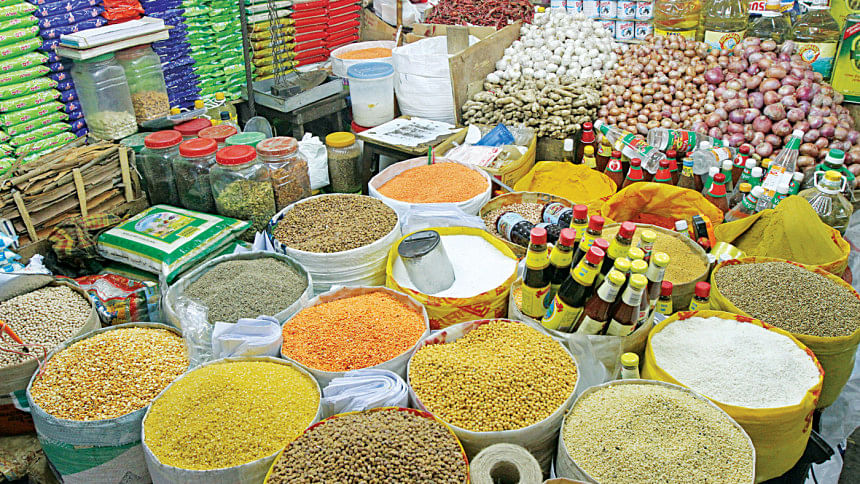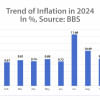No respite from high inflation

Inflation slowed down slightly in July but not enough to bring any relief to the urban poor and the lower middle-class in Dhaka and Chattogram, who have been battling a cost of living crisis for a good year now.
In July, inflation stood at 9.69 percent, down 10 basis points from the previous month, according to data from the Bangladesh Bureau of Statistics.
"This is statistical randomness -- July's inflation number does not allow you to definitively say whether it has increased or decreased," said Zahid Hussain, a former lead economist of the World Bank's Dhaka office.
Last month, food inflation edged up 3 basis points to 9.76 percent, while non-food inflation shed 13 basis points to stand at 9.47 percent.
There has been an infinitesimal drop in both rural and urban inflation in July.
Last month, rural inflation stood at 9.75 percent, down from June's 9.82 percent.
Urban inflation dropped from 9.45 percent to 9.43 percent in July, with food inflation accelerating 37 basis points to 9.63 percent.
This is particularly crushing for the low-skilled workers in urban areas, who saw their nominal wage rate decline in July.
The wage rate grew 5.22 percent in Dhaka in July, in contrast to 5.95 percent the previous month. Similarly, the wage rate grew 5.96 percent in Chattogram, down from 7.22 percent in June.
In Dhaka's services sector, the wage growth was 2.8 percent, which was 5.4 percent in June. Over at the port city, the wage growth in services sector was 6.37 percent in July, down from 9.55 percent in June.
"The rate of nominal wage growth is behind inflation. The real wages have continued to decline -- and these are low-skilled workers," Hussain said.
The government has targeted to keep inflation within 6 percent this fiscal year, meaning considerable work is needed to rein in the price level, which averaged upwards of 8 percent last fiscal year.
"We have talked about containing inflation but we have not walked the talk. Why is overall inflation so elevated month after month? That means inflation is deeply entrenched. We cannot say it is because of global factors as global inflation has declined," Hussain said.
Then the high inflation is due to domestic factors.
"If we look at the monetary policy, we went the other way. The lending rate was left untouched. Besides, the monetary financing of the budget deficit has been the highest in recent history."
Monetary financing of budget deficit entails directly injecting money into the economy.
In fiscal policy, there have been no inflation-reducing measures, Hussain said.
"If we look at fiscal policy, we raised the indirect taxes, which has a direct impact on prices."
The planned budget deficit for this fiscal year is Tk 2.6 lakh crore.
"If that is implemented it will further inflame inflation. Going forward, this deficit will not help if implemented."
On the supply side, the fuel prices and the electricity tariffs were hiked. "Their knock-on effect continues."
Then there is the problem in market management for certain commodities.
"Some suppliers have market power and there are allegations that they manipulate the market."
The authorities -- which are the commerce ministry and the Bangladesh Competition Commission -- are not taking the matter seriously, according to Hussain.
"We did not make any improvements towards making the market competitive. We have not done anything to ensure that the price movements in the international market are transmitted to the local market. We are walking the other way. So how will inflation come down?"

 For all latest news, follow The Daily Star's Google News channel.
For all latest news, follow The Daily Star's Google News channel. 








Comments